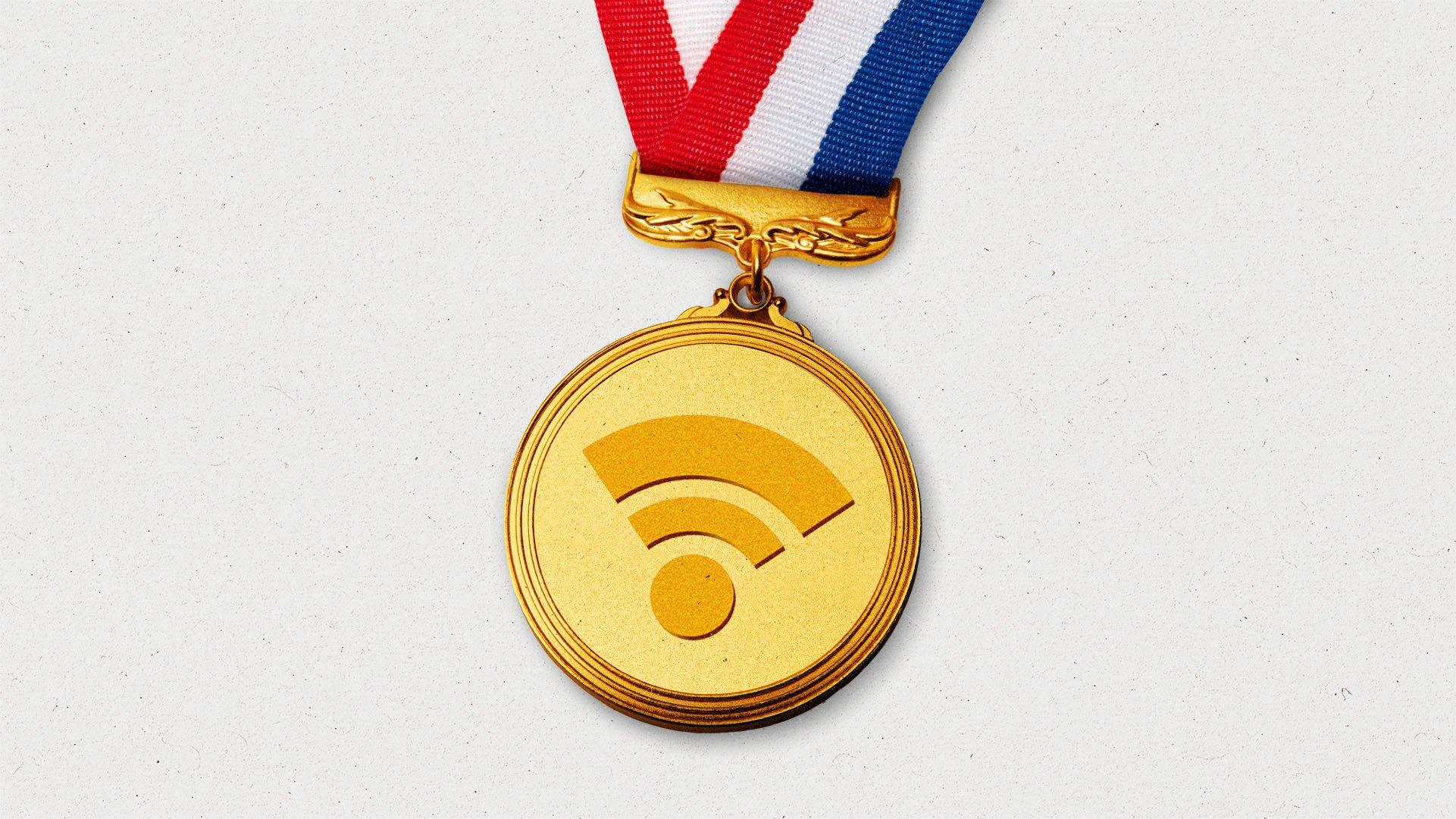The Olympics’ role in culture is evolving, and advertisers are moving with it

Illustration by Robyn Phelps / Getty / The Current
Months before the opening ceremonies, NBCUniversal announced it had already sold $1.2 billion in ad commitments for the upcoming Summer Olympics in Paris, France, which run from July 26 to August 11.
The broadcaster is on track to set a new record for ad revenue, according to Dan Lovinger, NBCU’s President of Olympic and Paralympic partnerships. Ad space is sold out for both the opening and closing ceremonies across NBC’s linear TV and Peacock, its streaming platform. Lovinger adds that new records have been set for digital advertising revenue. And a boatload of new money is expected, with $350 million so far coming from first-time advertisers.
“In a world where audiences have become more and more fragmented, we expect the Games to be the most watched media event of the year,” Lovinger said in a press briefing.
The growth of Peacock is an important factor in opening up access to viewers. For the first time ever, every single event will stream live on the streaming app, enabling more inventory, which gives more advertisers the opportunity to get involved.
“With the ability to market one to few rather than one to everyone, it opens up the aperture of how many advertisers can be part of the Olympic experience,” Lovinger said at a press briefing. “No other property can change the vector of a brand’s business or drive results like the Olympics can.”
Advertisers see the opportunity, says Rob Brett, VP of Digital Sales at media agency Playfly Sports. He explains that because streaming is being picked up at such a massive scale, he no longer needs to make the case to his clients about its value.
“The Olympics has so many sports that don't necessarily have as defined a fan base, so you can sample more,” Brett tells The Current. “There's more long-tailed content. And I think that through a digital platform, you just will have [that] advantage. You'll be able to present the Games in a way that you could never do some place else.”
Olympics’ role in culture as our habits evolve
Peacock and the streaming industry's evolution in society has changed the calculus for an iconic event like the Olympics. In a world that’s increasingly fragmented — not that the Games are completely immune to those changes — they yet remain as one of the few global media events that can unite fans around the world.
“The Olympics used to be monoculture when it was only on NBC and there were [only] three channels,” Robert Lambrechts, chief strategy officer at creative agency Pereira O’Dell tells The Current. “NBC had the Olympics and you had no choice. But then the fragmentation of media has actually made the Olympics more of a niche player, probably in a good way, a targetable play for people.”
Comparing the Olympics to a massive sporting event like the Super Bowl, which also exists as a cultural moment where some tune in only for the commercials, shows the Olympics could zig where the Super Bowl zags. The Games offer a chance for advertisers to be much more targeted with the combination of international audiences that all have disparate interests. NBCUniversal recently announced it’s opening up programmatic access to the Olympics for the first time, which will enable advertisers to reach their desired audience.
The way Lambrechts sees it, the Olympics make sense for two types of brands – global advertisers hoping to land a message across the world, and those looking to target a specific audience with the immense scale the Games offer.
NBCUniversal says it has sold out nearly 95% of its custom primetime marketing integrations, with several categories like non-alcoholic beverages, CPG, financial services, retail and entertainment seeing increases in ad spend.
Connecting to the feel good
Streaming is adding another layer for advertisers who traditionally have favored the upfronts for events like the Olympics, says Jennifer Kohl, chief media officer of the global agency VML.
Another reason the Olympics are a place brands can rally around is they provide feel-good content on a global scale, according to Kohl. That is especially important during an election year in the U.S., even considering this will be the first Olympics coming off the COVID-19 pandemic.
“Brands are looking for places where they can put their brand message that feel more happy and light,” Kohl tells The Current. “Something with a good aura around it.
A huge part of that connection is building a relationship with the stars of the Games through tales of triumph and tragedy. And in a sign of the times, Kohl asked who the Caitlin Clark of the Olympics might be.
Subscribe to The Current
Subscribe to The Current newsletter